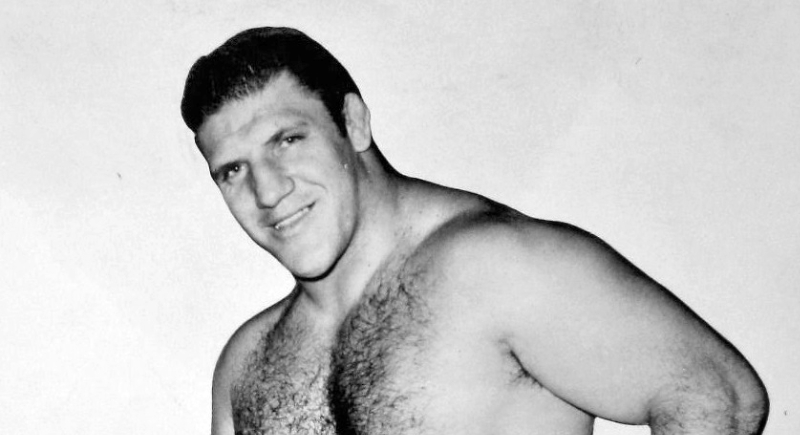Who Has Won the Most World Titles in Pro Wrestling History?
The WWE World Championship has been around since 1963, and since that time, only a small group of wrestlers have climbed up the ladder of title reigns. Each decade has produced its own dominant figures. In the 1960s and 1970s, for example, Bruno Sammartino held the belt for years at a time. Hulk Hogan defined the 1980s, and Ric Flair collected world championships across multiple promotions in the 1980s and 1990s that WWE now recognizes.
Fans may argue about dream matches and Mount Rushmore lists, but the tally of world championships has always been the easiest way to stack one generation against another. That’s why the question of who sits on top right now has become one of the sport’s most important markers of history.
Legends Who Set the Standard

Image via Wikimedia Commons/Unknown Author
Bruno Sammartino is still remembered for the longest title reign in WWE history, a seven-year run from 1963 to 1971 that clocked in at 2,803 days. Bob Backlund followed that record with a reign that lasted 2,135 days.
Then came Hulk Hogan, who burst onto the scene in 1984 and carried the company into the mainstream. Hogan’s initial reign lasted 1,474 days, and by the end of his career, he had stacked up 12 recognized world titles.
The 1980s and 1990s added another twist with Ric Flair. WWE credits him with 16 reigns, though depending on which promotions you count, the number could climb past 20. His ability to collect titles in NWA, WCW, and WWE gave him a unique spot in wrestling history. For decades, Flair’s 16 remained the benchmark that no one could top.
Modern Era Record Holders
The shift to shorter reigns and more frequent title changes in the 2000s gave way to a new group of multi-time champions. Triple H carved out 14 reigns between 1999 and 2016, while Randy Orton matched that number and became the youngest world champion ever in 2004 at age 24. Both of them were reliable names at the top of WWE programming for more than a decade.
Brock Lesnar also made his own mark with 10 world championships, including the longest Universal title reign at 503 days. The Rock reached the same total of 10, with his last world title run in 2013 after defeating CM Punk. These names defined WWE in the 2000s and 2010s.
The Current Record Breaker

Image via Wikimedia Commons/Diego Serrano
Fans wondered for a long time if anyone would ever pass Flair’s 16. Their question was finally answered at WrestleMania 41 in April 2025 when John Cena defeated Cody Rhodes to win his 17th world championship. Cena had been tied with Flair since 2017, and his victory broke the long-standing deadlock. His career now ends with 17 reigns across WWE’s top titles.
The context makes this record even more significant. Cena carried WWE through the mid-2000s boom, the PG Era, and into the modern streaming era. His world title wins began in 2005 and stretched all the way to 2025. Few wrestlers in history have maintained that level of relevance over 20 years.
On the women’s side, Charlotte Flair leads the way with 14 recognized reigns. Her total includes Raw, SmackDown, and Divas championships. Becky Lynch follows with eight singles reigns (two as Raw Women’s Champion, five as SmackDown/Women’s World Champion, and one as NXT Women’s Champion). If you include her two WWE Women’s Tag Team Championship runs, her overall tally rises to 10. Behind them are Sasha Banks and Trish Stratus with seven apiece. While these numbers don’t reach the heights of their male counterparts, the women’s division only began to regularly headline shows in the past decade, which means that their records could climb quickly in the coming years.
Why Count Titles?
Championship reigns track how WWE has chosen its stars across generations. Sammartino’s and Backlund’s long runs reflected stability. Hogan’s dominance has made WWE a global brand. Flair’s cross-promotion success showed how the industry connected, and the modern era, with Cena breaking Flair’s record, is writing its own history.
In wrestling, legacies can be measured in many ways, but the world title count is still the most universal scoreboard that fans and historians alike agree on.